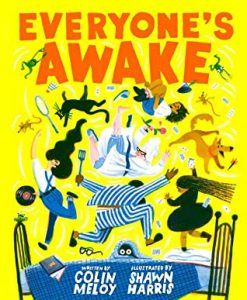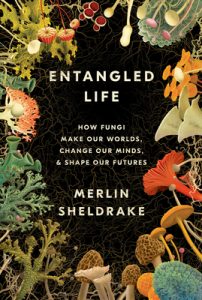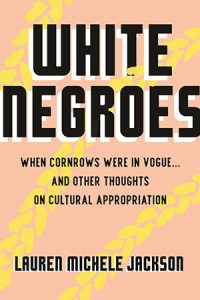 Building off of Alex’s post about children’s literacy and developing early literacy skills, I’d like to talk about a couple of my more recent forays into picture books and children’s literature and highlight some titles for children & adults alike!
Building off of Alex’s post about children’s literacy and developing early literacy skills, I’d like to talk about a couple of my more recent forays into picture books and children’s literature and highlight some titles for children & adults alike!
I recently encountered this delightfully written galloping ride of a fever dream, scaled for the reader as a picture book! It’s Everyone’s Awake by Colin Meloy, illustrated by Shawn Harris, and I didn’t know this at the time, but the author, Colin Meloy, is the lead singer & songwriter of The Decemberists, and the musical romp of the prose makes a lot more sense knowing this! This is one of those books you almost can’t help but read aloud, and would make for a great storytime read.* The storyline, if it can be referred to as such, is as straightforward as it gets: everyone’s awake in the night when they should be sleeping, but obviously you’re not picking up a book called Everyone’s Awake just to find that out: it’s everything in between the quite simple story that makes this such an incredibly energetic book, whipped into even more of a frenzy with the incredible illustrations by Shawn Harris and – just look at that colour palette! The pages practically vibrate with energy and movement between the illustrations and the colours, words jumping off your lips faster than you can read them. And by the end (one would hope) you have tired yourself out with all that energy expended, ready to fall asleep.

 Not to hit you all over the head with the message that systemic racism is an issue that permeates basically every sphere – though it is and if you needed the reminder, here it is – but let’s talk a little about cultural appropriation and racism in the food industry (specifically at Condé Nast with their Bon Appétit magazine), because recipe sharing over social media has boomed in these past few months due to quarantine, and many of us have been baking and cooking a lot more than before and following new bakers and cooks/chefs for their recipes.
Not to hit you all over the head with the message that systemic racism is an issue that permeates basically every sphere – though it is and if you needed the reminder, here it is – but let’s talk a little about cultural appropriation and racism in the food industry (specifically at Condé Nast with their Bon Appétit magazine), because recipe sharing over social media has boomed in these past few months due to quarantine, and many of us have been baking and cooking a lot more than before and following new bakers and cooks/chefs for their recipes.